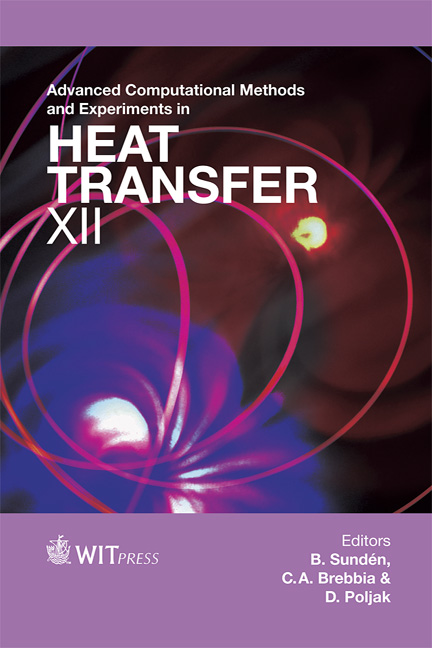Analysis Of The Complementary Energy Losses Of A High Temperature Gas To Gas Heat Exchanger Based On A Solid Intermediate Medium
Price
Free (open access)
Transaction
Volume
75
Pages
12
Page Range
109 - 120
Published
2012
Size
566 kb
Paper DOI
10.2495/HT120101
Copyright
WIT Press
Author(s)
L. A. Catalano, R. Amirante, P. Tamburrano & S. Copertino
Abstract
This paper focuses on the analysis of the complementary energy losses of a gas to gas heat exchanger using an intermediate medium with high thermal capacity to transfer heat between two gas streams at different pressure. In fact, such a heat exchanger requires two mechanical devices, namely a pressurization system capable of transferring the particles from a low pressure to a high pressure environment, and a depressurization system, for the inverse procedure. The operating procedures of these two key components are presented in detail and a simple zero-dimensional approach is also proposed to model both systems. A numerical analysis, based on the same zero-dimensional model, is performed in order to evaluate all energy losses related to the pressurization and depressurization procedures. A further energy loss is analysed, in particular the one related to the energy absorbed by the conveyor employed to deliver back the particles from the bottom to the top of the plant in order to realize a continuous operation mode. Keywords: gas turbines, external combustion, heat exchanger, particle pressurization. 1 Introduction The application of externally fired gas turbines for power generation would offer the possibility of burning \“dirty” fuels, like coal or orimulsion or biomass, since the combustion gases are not in direct contact with the moving parts of the machine in the external combustion operation mode. On the contrary, modern energy conversion technologies like internal combustion gas turbines demand the use of clean fuels, which are significantly more expensive. Even if externally
Keywords
gas turbines, external combustion, heat exchanger, particle pressurization.





